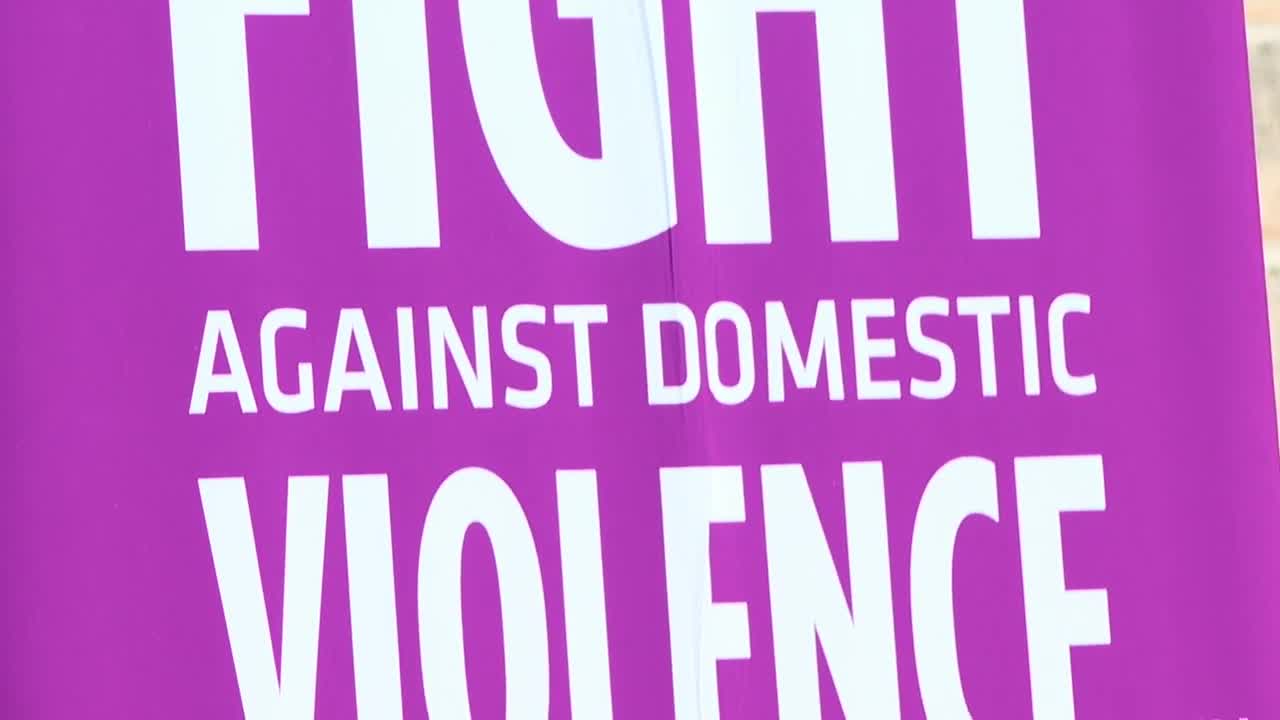SALT LAKE CITY — In a place that’s typically divided by red and blue, the Utah State Capitol steps were surrounded by a mix of the two.
The "Dear Utah" group held its second annual Domestic Violence Awareness Rally at the capitol on Tuesday. The organization provides a platform for people in Utah to share their own connection to domestic violence.
The Dear Utah Campaign is encapsulated in purple. It’s a color that represents courage and strength — both of which describe Jenny Andrus.
“I was the victim of emotional, psychological and financial domestic violence for years and years and years, but it also became increasingly intense, and I knew my life was at risk,” Andrus said.
It took several years for Andrus to be comfortable telling her own story. This year marked the 10th anniversary of the domestic violence incident that changed her life.
“I was held hostage for four hours, and I just remember thinking, 'Survive this minute. Survive this minute,' right?” Andrus said. "'What can you say right now to survive this minute?' I just made it through with that mantra."
Now she uses her own experience to help others through theirs. At the University of Utah, she recently conducted a study where she listened to dozens of domestic violence survivors and asked them why they stayed or left. She said those stories are intense and powerful. At the event, she was able to share some of those stories with a hope to help others in need.
WATCH: Help is available in rural Utah for domestic violence victims
“Storytelling is more than just a way of recounting prior events. It is a form of connection. A way of presenting oneself to the listener, looking for understanding,” Andrus said. "The stories from victim survivors that I will tell today demonstrate the power of narrative, their strength of will, and their yearning for peace.”
Advocates said domestic violence doesn’t discriminate against income or zip code. It can happen to anyone.
“Hopefully, more people will recognize the signs," said Brooke Muir, the executive director of Fight Against Domestic Violence. "We always look for the physical signs, but more often than not, the psychological, emotional, sexual abuse are the things that are harder to see but have longer lasting impact for survivors."
Another organization, Peace House, said they’ve seen more families in crisis, and more people reaching out for help.
Some signs of abuse can include, but are not limited to, sudden behavior changes, self-blame, or isolation from friends and family.
“The instant I started working for this organization. You can’t hide behind what we do. Fight against domestic violence,” Muir said. “I had friends and family members come out and tell me their stories, so I am grateful to be here as an ally and advocate.”
Through the power of purple, these advocates hope their stories of survival and bravery will make their way to those who need to hear them most.
“We get a lot of statistics, but what we don’t get a lot of is voices and faces," Andrus said. "So this gives face and voice to the statistics."




